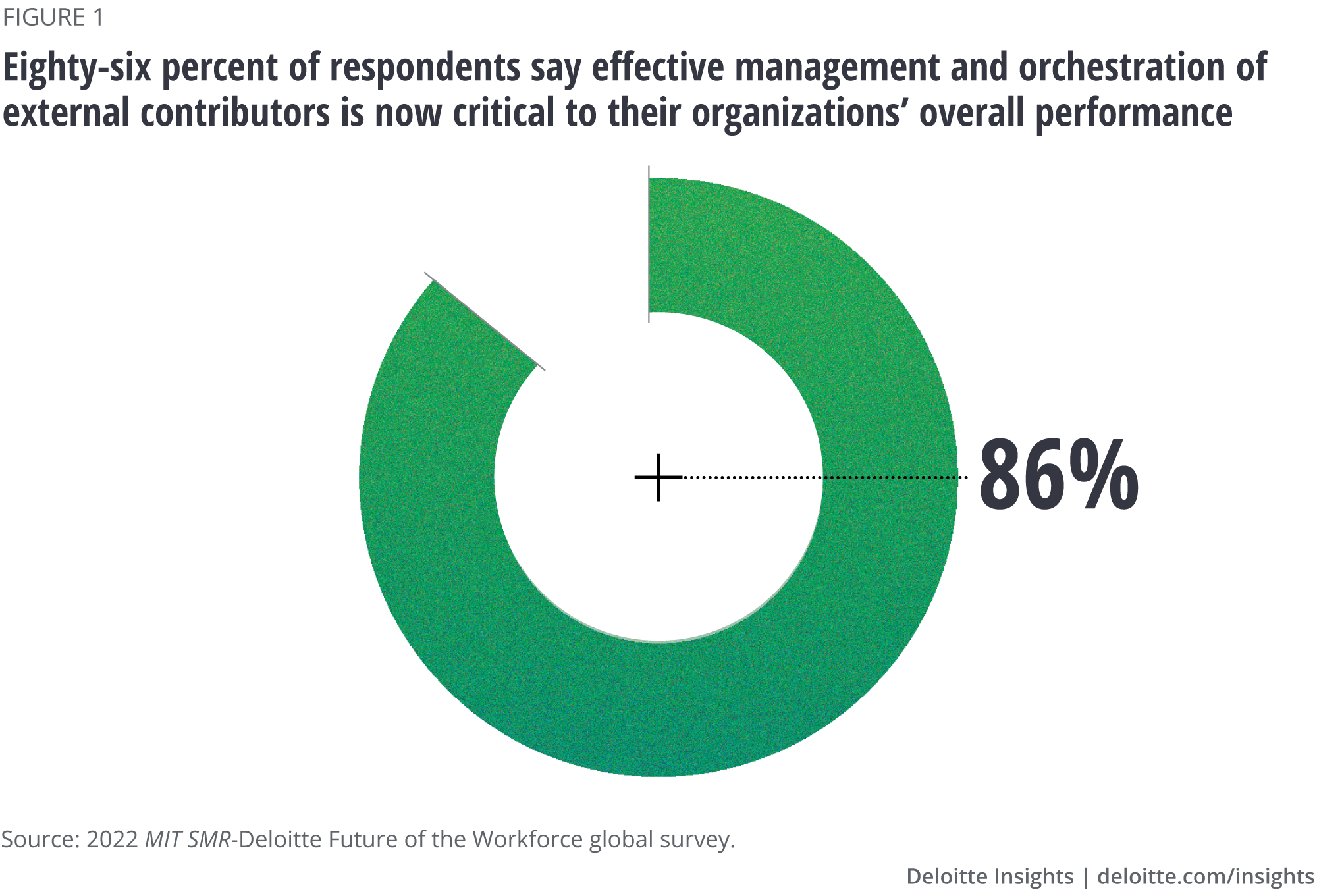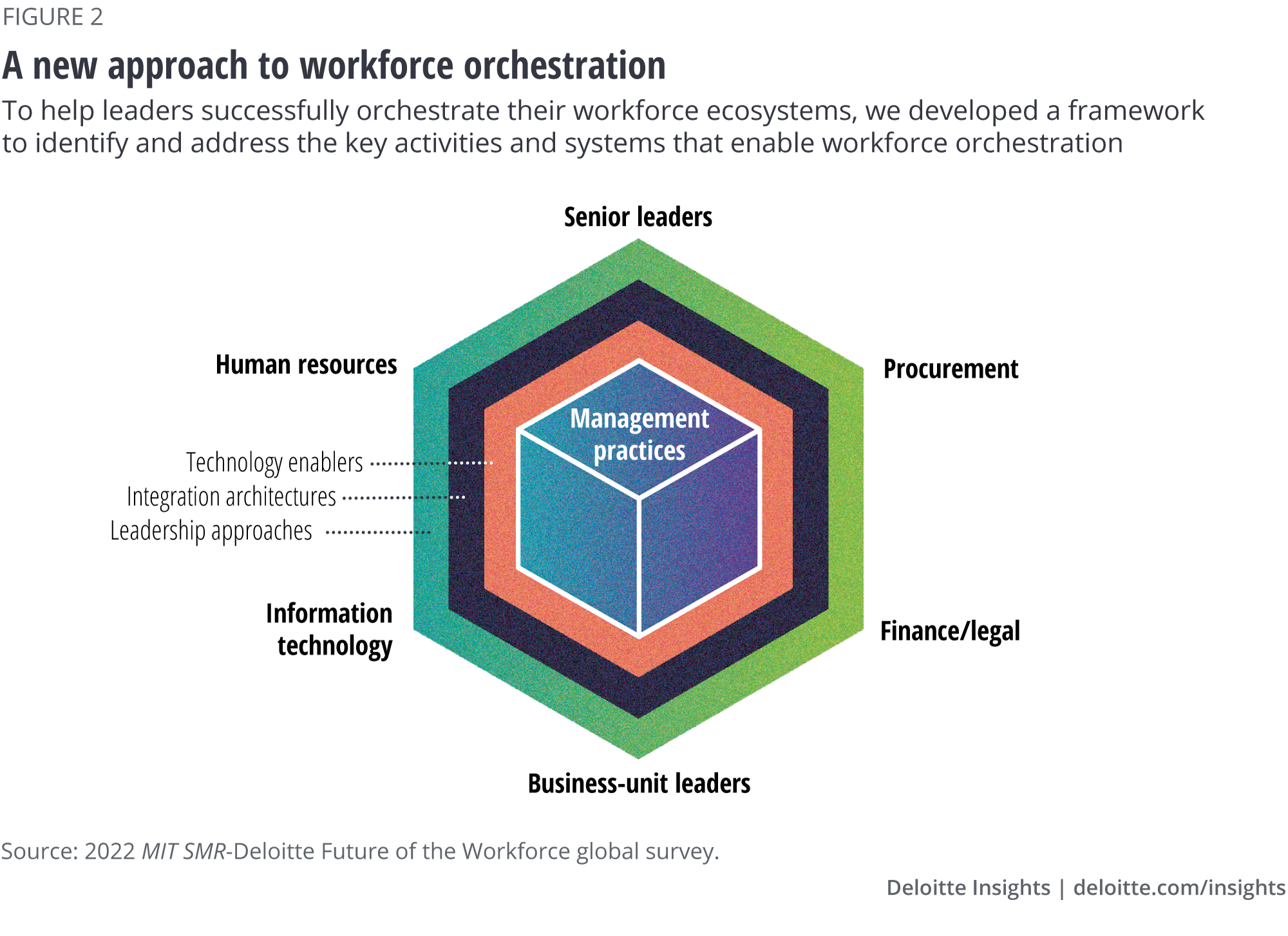Managing the extended and connected workforce
A framework for orchestrating workforce ecosystems
Elizabeth J. Altman
Sue Cantrell
Robin Jones
Steve Hatfield
As the makeup of the modern workforce becomes more complex, two realities are emerging for organizational leaders: their organizations are relying more and more on external contributors like contractors, professional service companies, gig workers, crowdsourced contributors, app developers, and even certain technologies to achieve strategic goals and objectives. And their current workforce management systems aren’t designed to bridge the management gap between internal and external contributors.
The management challenges that often result from disparate management approaches can have a significant impact on organizational strategy, leadership, and culture, so reconciling these realities is a top priority for many executives.1 According to the 2022 Global Executive Survey conducted by MIT Sloan Management Review and Deloitte, 86% of respondents say effective management and orchestration of external contributors is now critical to their organization’s performance.2 But only 33% say their organization is sufficiently preparing to manage a workforce that will rely more on external contributors.3

What do leaders need to do to better integrate their internal and external contributors across their organizations? Because workforce ecosystems—organizational structures that encompass actors from within the organization and beyond working together to pursue individual and collective goals—often include contributors that may or may not be directly controlled or influenced by the organization, traditional notions of management don’t always apply. We use the term “orchestration” to describe the process of coordinating groups of internal and external contributors to create an aligned effort toward achieving organizational (and individual) goals and objectives. Successful leaders adapt and orchestrate their management practices to support these new, more interconnected ecosystems.
In this framework developed by MIT Sloan Management Review and Deloitte, we identify the essential activities and systems that leaders need to orchestrate to coordinate diverse contributors in a workforce ecosystem. The framework highlights critical roles in workforce ecosystem orchestration, including senior leaders, business unit leaders, human resources, procurement, information technology, legal, and finance.

In addition to adapting management practices like workforce planning or alignment with partners, intentionally orchestrating a workforce requires new approaches in these key areas:
- Technology used for people management, productivity and collaboration, remote work, credentialization, and performing work as a participant in workforce ecosystems (e.g., automation/artificial intelligence)
- Integration architectures that coordinate internal and external relationships
- Community-building leadership approaches within and beyond organizational boundaries that enable influence without authority and extend diversity, equity, and inclusion principles beyond internal employees
To learn more about workforce orchestration and the roles different organizational leaders and business units play in integrating internal and external contributors, view the full framework by MIT Sloan Management Review and Deloitte.